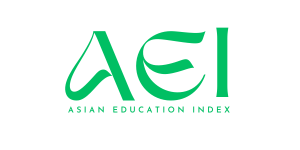Relevance of the Use Of Pedagogical and Innovative Technologies in Russian Lessons
Keywords:
innovative technology, Russian language, method, efficiencyAbstract
This article discusses the role of pedagogical and innovative technologies in the organization of Russian language classes in higher educational institutions
References
Asanova, S. (2019). Virtualization of education is a step into the future. Intercultural Studies: Education and Science, 4(4), 116-124.
Antonova N.L. and Merenkov A.V. (2018). The Flipped Learning Model in Higher Education: Problems and Contradictions. Education Integration, 22(2), 237-247.
Braim, K. (2013). Class reversal. Vanderbilt University Learning Center. Extracted from
Crouch, C.H., & Mazur, E. (2011). Peer learning: ten years of experience and results. American Journal of Physics, 69(9), 970-977.
Fulton, K.P. (2012). 10 reasons to roll over, new learning styles. Phi Delta Kappan, 94(2), 20-24.
Braim, K. (2013). Class reversal. Vanderbilt University Learning Center.
Levy, S. (2010). Tabula Rasa: why the new generation of tablet computers is changing everything. Wired, 18(4), 75-85.
Tikhonova, N.K. (2018). Flipped Classroom Technology in Higher Educational Institutions: Opportunities and Problems of Implementation. Kazan Pedagogical Journal, 2, 74-78.
Downloads
Published
Issue
Section
License

This work is licensed under a Creative Commons Attribution-NonCommercial 4.0 International License.
User Rights
Under the Creative Commons Attribution-NonCommercial 4.0 International (CC-BY-NC), the author (s) and users are free to share (copy, distribute and transmit the contribution).
Rights of Authors
Authors retain the following rights:
1. Copyright and other proprietary rights relating to the article, such as patent rights,
2. the right to use the substance of the article in future works, including lectures and books,
3. the right to reproduce the article for own purposes, provided the copies are not offered for sale,
4. the right to self-archive the article.













